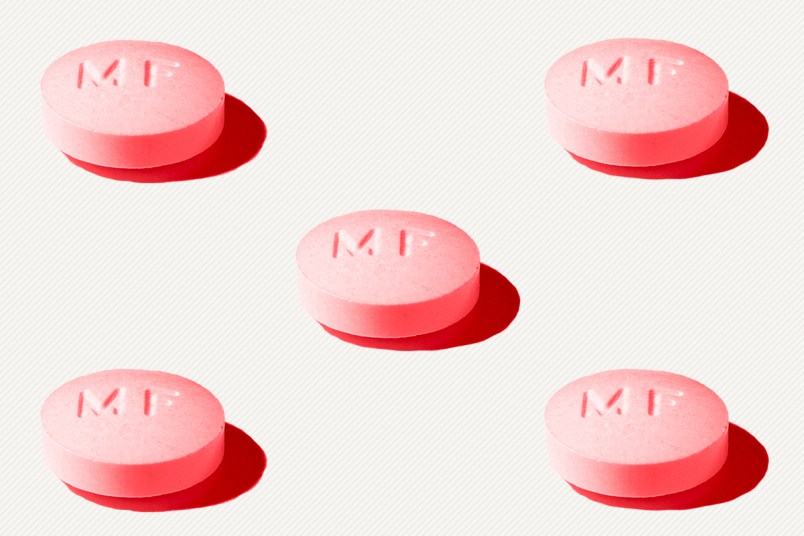A Fifth Circuit Court of Appeals panel handed down a decision Wednesday batting down challenges to the Food and Drug Administration’s (FDA) initial approval of abortion drug mifepristone, but reinstituting restrictions that the agency has lifted in recent years.
The three-judge panel reversed the most headline-grabbing part of Donald Trump-appointed district court Judge Matthew Kacsmaryk’s decision, in which he ruled that the FDA’s 20-plus-year approval of mifepristone should be nixed.
The anti-abortion groups who brought the suit had argued that alterations to the drug’s disbursement regime in 2016 qualified as “reopening” the question of that initial approval, giving courts the opportunity to revisit it. The Fifth Circuit panel rejected that claim.
“They do not alter FDA’s basic assumption that mifepristone is safe and effective, subject to certain conditions for use,” the panel wrote of the 2016 changes.
The panel held the same on the 2021 alterations to the drug’s regime, where the FDA, most significantly, removed the in-person dispensing requirement.
“As with the 2016 Amendments, removing the in-person dispensing requirement does not change the basic concept of allowing women to use mifepristone,” the judges wrote.
But, the judges were very willing to question the FDA’s decision-making, including on fairly technical clinical aspects. For example, the judges gave the greenlight to reimposing restrictions that the FDA lifted in 2016 — including expanding the on-label gestational window in which the drug can be used — because they quibbled with how the agency determined that the changes were safe.
The ruling is also replete with histrionic messaging about the danger of mifepristone, talking points that have been a ubiquitous and long-lived tactic of the anti-abortion movement and have resulted in restrictions that major medical groups have long critiqued as based in politics and not medical necessity.
Judge James Ho, a Trump appointee, wrote separately to say that he also would have invalidated the FDA’s 2000 approval of mifepristone.
Ho indulged in reasoning that would seem far afield in a legal decision.
“Unborn babies are a source of profound joy for those who view them. Expectant parents eagerly share ultrasound photos with loved ones,” he wrote. “Friends and family cheer at the sight of an unborn child. Doctors delight in working with their unborn patients — and experience an aesthetic injury when they are aborted.”
Ho also spent time rooting for an anti-abortion argument that mailing abortion drugs violates the Comstock Act, an anti-vice law from the 1870s that hasn’t been enforced by the federal government since the 1930s, and took a whack at the FDA and an abortion manufacturer for criticizing Kacsmaryk’s original decision.
“In this appeal, neither the FDA nor Danco is content to simply argue that the district court erred,” he intoned. “They disparage the ruling as ‘an unprecedented judicial assault on a careful regulatory process.’ The ‘non-expert’ district court issued an ‘unprecedented order countermanding the scientific judgment of the Food and Drug Administration.’”
He then goes on to list an unrelated accounting of various FDA errors through the years. They include that the agency “has been blamed for contributing to the opioid crisis.”
Another judge on the panel, too, scolded the defendants for being too mean to Kacsmaryk in their briefs during oral arguments.
The Supreme Court had previously issued a stay in the case, meaning that mifepristone will remain fully accessible until the high Court either issues its own ruling or declines to hear the likely coming appeal from the Fifth Circuit.
Read the decision here:



